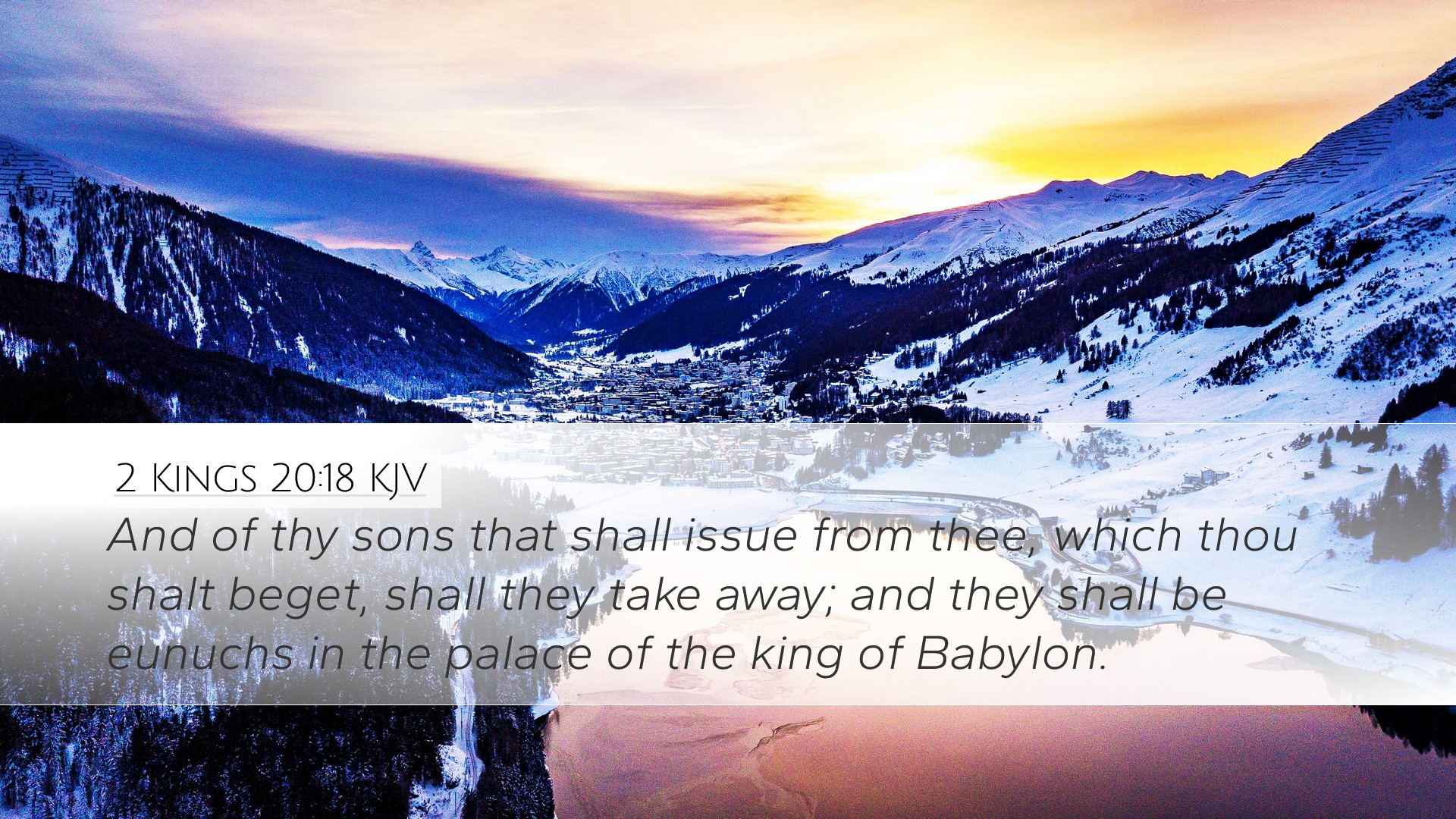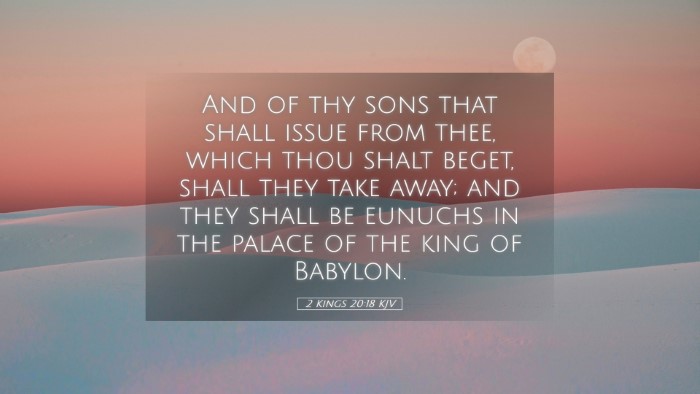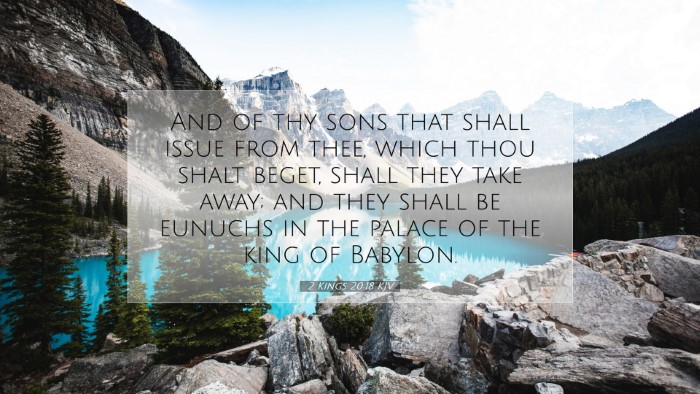Old Testament
Genesis Exodus Leviticus Numbers Deuteronomy Joshua Judges Ruth 1 Samuel 2 Samuel 1 Kings 2 Kings 1 Chronicles 2 Chronicles Ezra Nehemiah Esther Job Psalms Proverbs Ecclesiastes Song of Solomon Isaiah Jeremiah Lamentations Ezekiel Daniel Hosea Joel Amos Obadiah Jonah Micah Nahum Habakkuk Zephaniah Haggai Zechariah Malachi2 Kings 20:18
2 Kings 20:18 KJV
And of thy sons that shall issue from thee, which thou shalt beget, shall they take away; and they shall be eunuchs in the palace of the king of Babylon.
2 Kings 20:18 Bible Commentary
Commentary on 2 Kings 20:18
Verse Overview: 2 Kings 20:18 states, "And of thy sons that shall issue from thee, which thou shalt beget, shall they take away; and they shall be eunuchs in the palace of the king of Babylon." This verse is part of the prophecy given to King Hezekiah regarding the future of his lineage and the fate of Jerusalem.
Historical Context
This verse occurs in a significant historical context where King Hezekiah was recovering from a severe illness and was granted an extension of life through divine intervention. Following his healing, he shows the Babylonians the treasures of his kingdom, which leads to the prophetic utterance concerning his descendants.
Theological Implications
The commentary on this verse brings out profound theological implications regarding God's sovereignty and justice. The actions of Hezekiah in displaying his wealth became a focal point for God's judgment, reflecting how even acts of pride can lead to severe consequences.
Key Insights from Commentaries
-
Matthew Henry:
In his commentary, Henry emphasizes that the prediction of the captivity of Hezekiah’s descendants serves to remind the faithful of the inevitable consequences of pride and disobedience. He notes how the contentment in God’s deliverance can change into gravitas over future transgressions. He stresses the seriousness of covenant faithfulness and how the glory of God can be marred through individual actions.
-
Albert Barnes:
Barnes discusses the implications of the prophecy more extensively, noting that the destruction of human institutions does not hinder God's plan. He interprets the mention of “eunuchs” as a figurative description of a loss of heritage and lineage due to sin. This commentary underscores the importance of maintaining spiritual integrity as legacy implications unfold through generations. It highlights the grim reality of servitude and loss that can come if God’s covenant is not upheld.
-
Adam Clarke:
Clarke approaches this verse by elaborating on the Hebrew term for eunuchs, suggesting it could imply various forms of servitude. His insights also provide a balanced lookup of historical records that coincide with this prophecy. He provides a rigorous analysis of Hezekiah’s kingship, indicating that despite his faithfulness, the consequences of national sin can still be visited upon his descendants. Clarke’s theological reflections focus on God’s omniscience and the unfolding of His redemptive plan even in circumstances that seem dire.
Reflection for Contemporary Application
This verse serves as a sober reminder for pastors and theologians today concerning the gravity of leadership and the consequences of actions in light of God's law. The insights from these esteemed commentaries reveal that leaders stand in a significant place not only of authority but of parentage which attracts both blessings and curses based on their fidelity to God's covenant.
Pastoral Insights
- Leadership Accountability: Church leaders must remain vigilant concerning how their behavior may affect future generations. Decisions should be made through prayerful consideration of God’s will and the example they set.
- Understanding Consequences: Ministers and leaders must preach and teach to their congregations about the interconnectedness of our actions and the divine consequences that follow, ensuring that God's principles are upheld within the community.
Conclusion
In summary, 2 Kings 20:18 offers deep narrative and theological richness that is relevant in both the ancient and modern contexts. It stands as a message of caution regarding pride and demonstrates God’s justice even amidst His mercy. As scholars reflect on these commentaries, they will find a wealth of wisdom applicable to life in Christian ministry and leadership.


